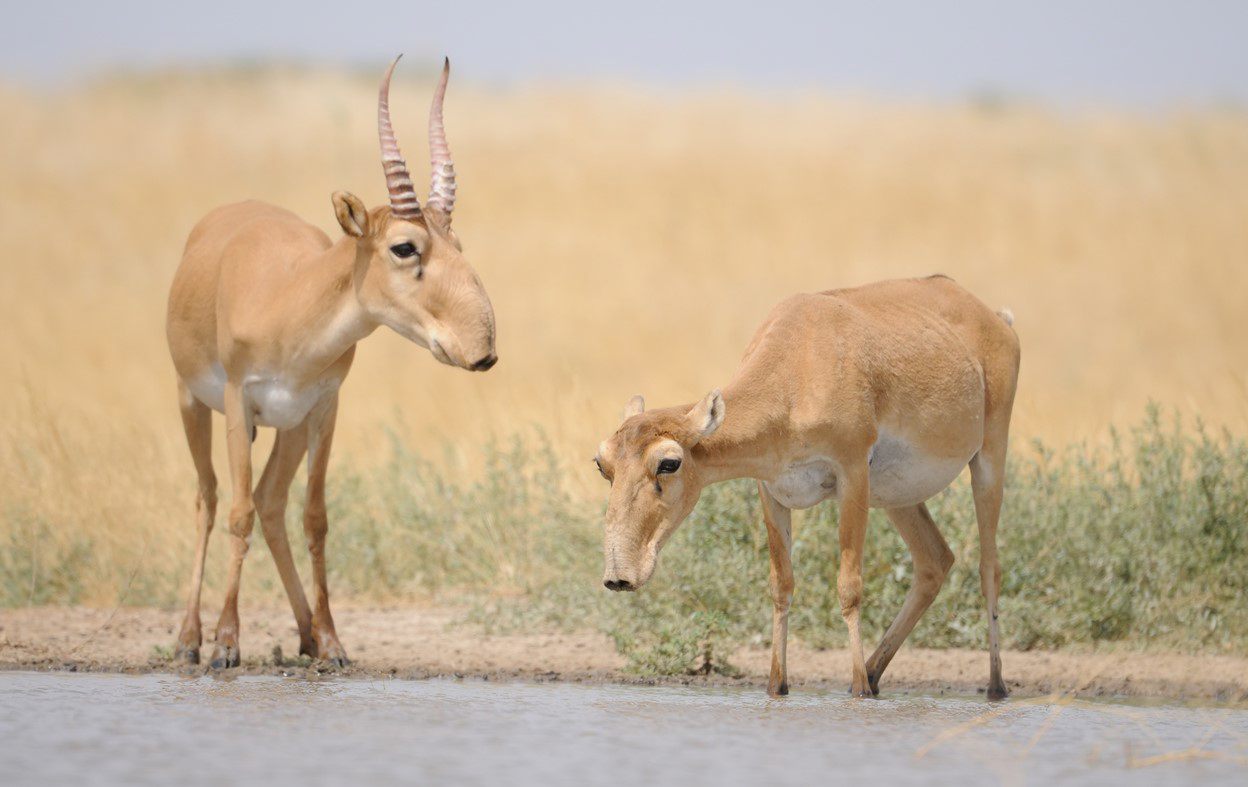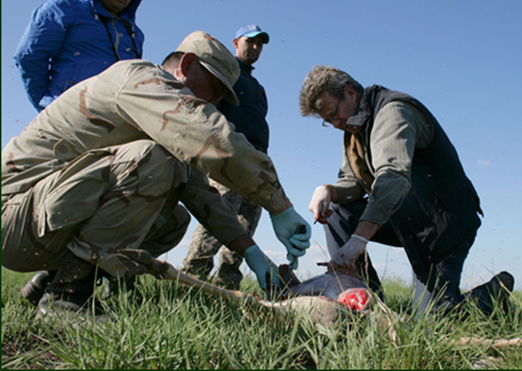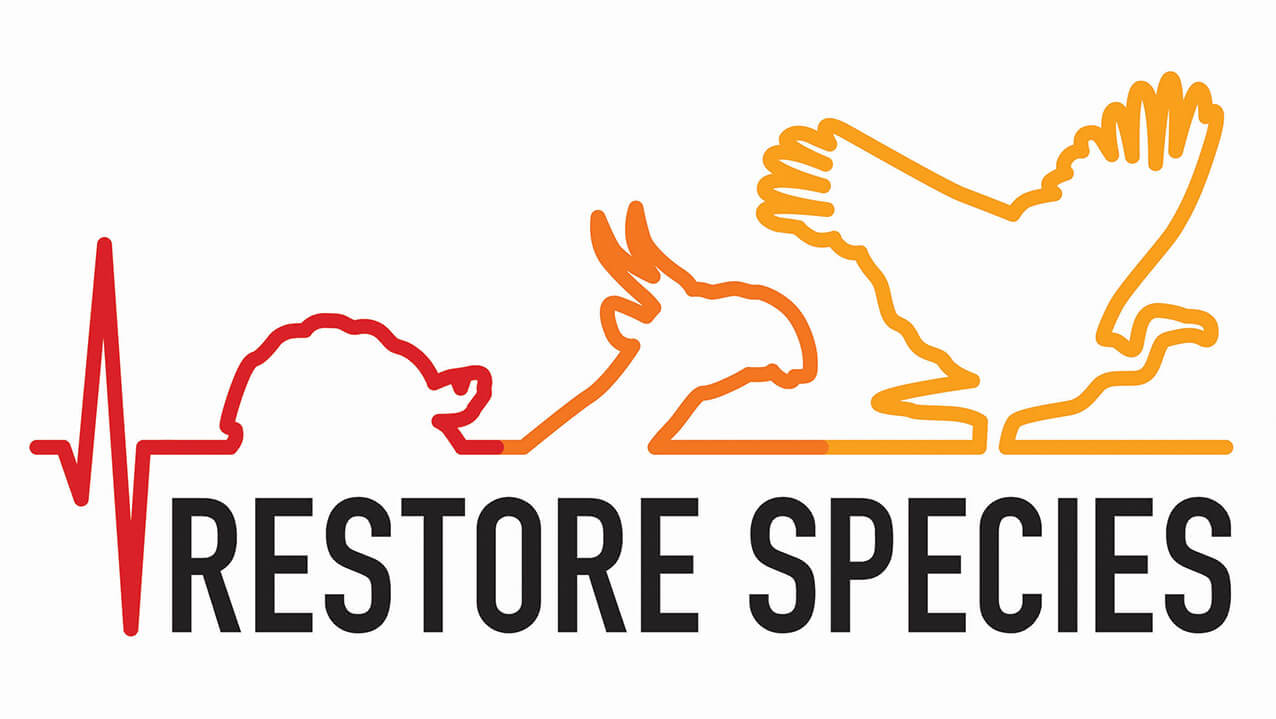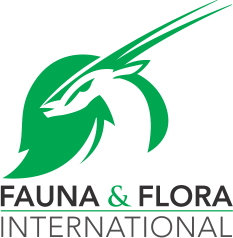Herds of migrating Saiga have been an iconic sight on the steppes of Central Asia for millennia, where they are uniquely adapted to survive the region’s weather extremes. But this inspiring ancient phenomenon could soon be a thing of the past, in the absence of actions to tackle illegal hunting and other current threats.
Saiga are now threatened by poaching and, in a vicious circle, their reduced populations have become more susceptible to disease. We are collaborating with local partners in Kazakhstan and Mongolia to tackle this problem on multiple fronts. We are combating illegal hunting and trafficking at national and regional levels, and working to mitigate the impacts of disease on these remarkable antelopes. But further efforts must be made to protect the dramatically declining population.
The problem: Saiga horn poaching and trade
Across its range in Central Asia, the population of Saiga has plummeted because of severe poaching for their horns.
Numbers have fallen dramatically from millions in the early 1990s to fewer than 130,000 in 2016.
The main threats to Saiga are twofold: hunting to fuel the demand for horn in traditional Asian medicine, and ever-increasing mass mortality events as a result of disease.
Fortunately, Saiga have high fecundity. Their ability to produce many offspring throughout their lives gives the species a natural resilience to recover from shocks such as population crashes caused by harsh winters and disease. Should poaching be successfully quashed, the Saiga’s reproductive rate gives the species enormous potential to bounce back.
But this hasn’t happened yet. In Kazakhstan, a key country for the species, some populations have been reduced by more than 60% in recent years, and Saiga are now treated as globally Critically Endangered.

Saiga © Victor Tyakht
Our Response
Restore Species Vision: Restored and resilient populations of Saiga within grassland steppe habitats across Central Asia.
Aim: To increase Saiga populations in Kazakhstan (specifically in the Ustyurt region) and Mongolia by tackling trade-driven poaching and disease.
Actions & outcomes:
The Restore Species Partnership will join forces with groups on the ground to protect Central Asia’s Critically Endangered Saiga by establishing anti-poaching and counter-trafficking responses, combined with disease mitigation strategies. Our initial focus is on populations in Kazakhstan and Mongolia.
Combat Saiga poaching in key habitats
We will monitor and map trade routes using strategically-placed patrols, building a network of contacts who can contribute to informed, targeted responses. In the Ustyurt, we will sustain an independent ranger team to provide an example of best practice, combined with SMART anti-poaching patrols.
Strengthen law enforcement
We will work to influence high-level decision-makers to prioritise wildlife crime and build law enforcement capacity. We will further empower law enforcement agencies by helping to train and deploy more sniffer dogs at borders.
Promote trans-boundary cooperation to combat trafficking
We will organise regional exchanges which will allow law enforcement bodies to share learning and coordinate their responses. This will help to bring about stronger and more organised reactions to hunting, and improve knowledge and techniques.
Address disease risks which cause catastrophic die-offs in Saiga populations
We will implement disease surveillance monitoring systems, and investigate intervention options in key landscapes that may include livestock vaccination, geographical separation of wildlife from infected livestock to limit contact, and/or improved range conditions to nutritionally support immune responses to disease exposure.
Build community support for Saiga conservation
We will be working alongside local communities, organising educational activities to inform both adults and children about the plight of the Saiga. The aim will be to inspire local people to become directly involved in conservation action, helping to drive Saiga conservation.

Vets in Kazakhstan investing Saiga mass die off © S. Zuther / FFI




